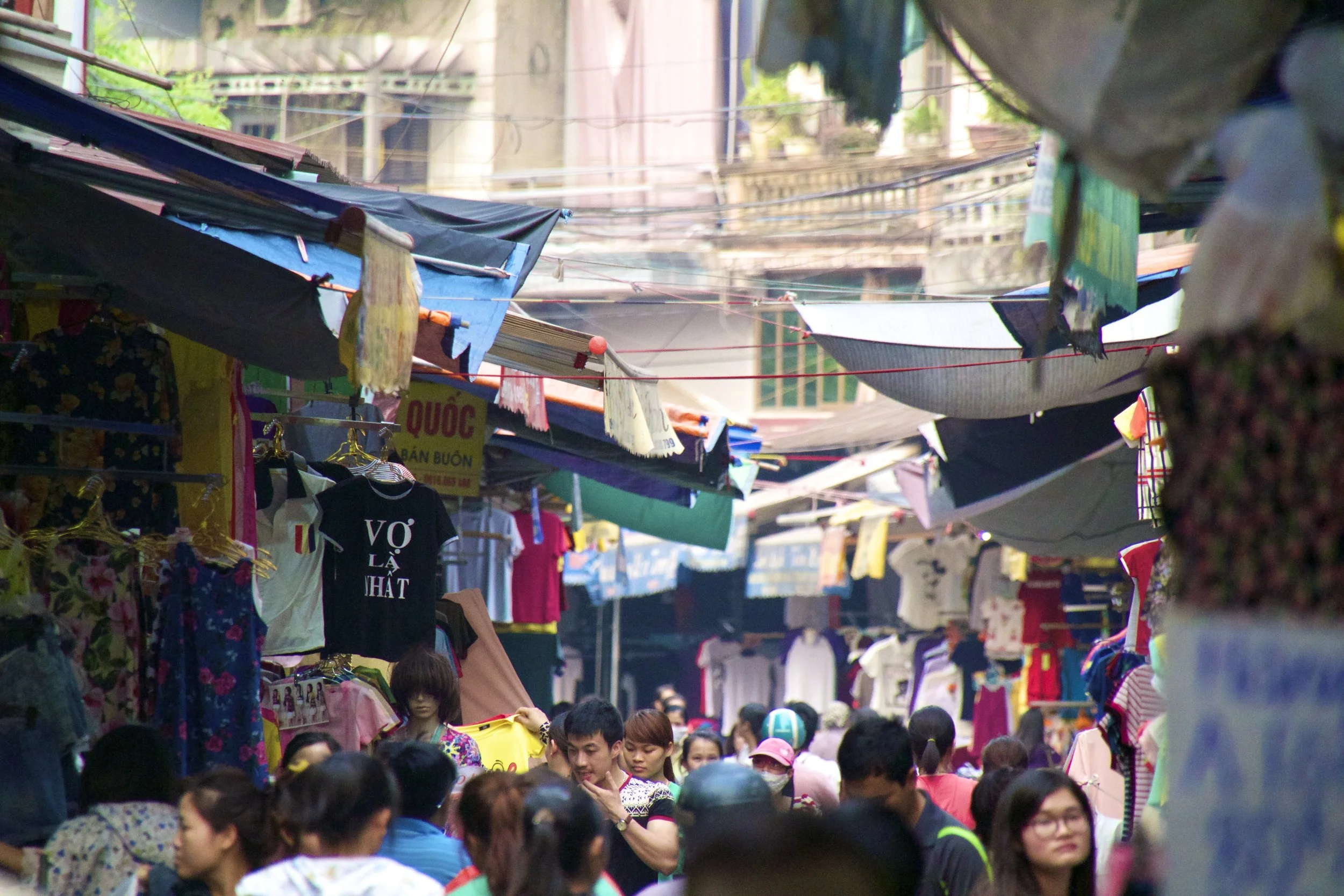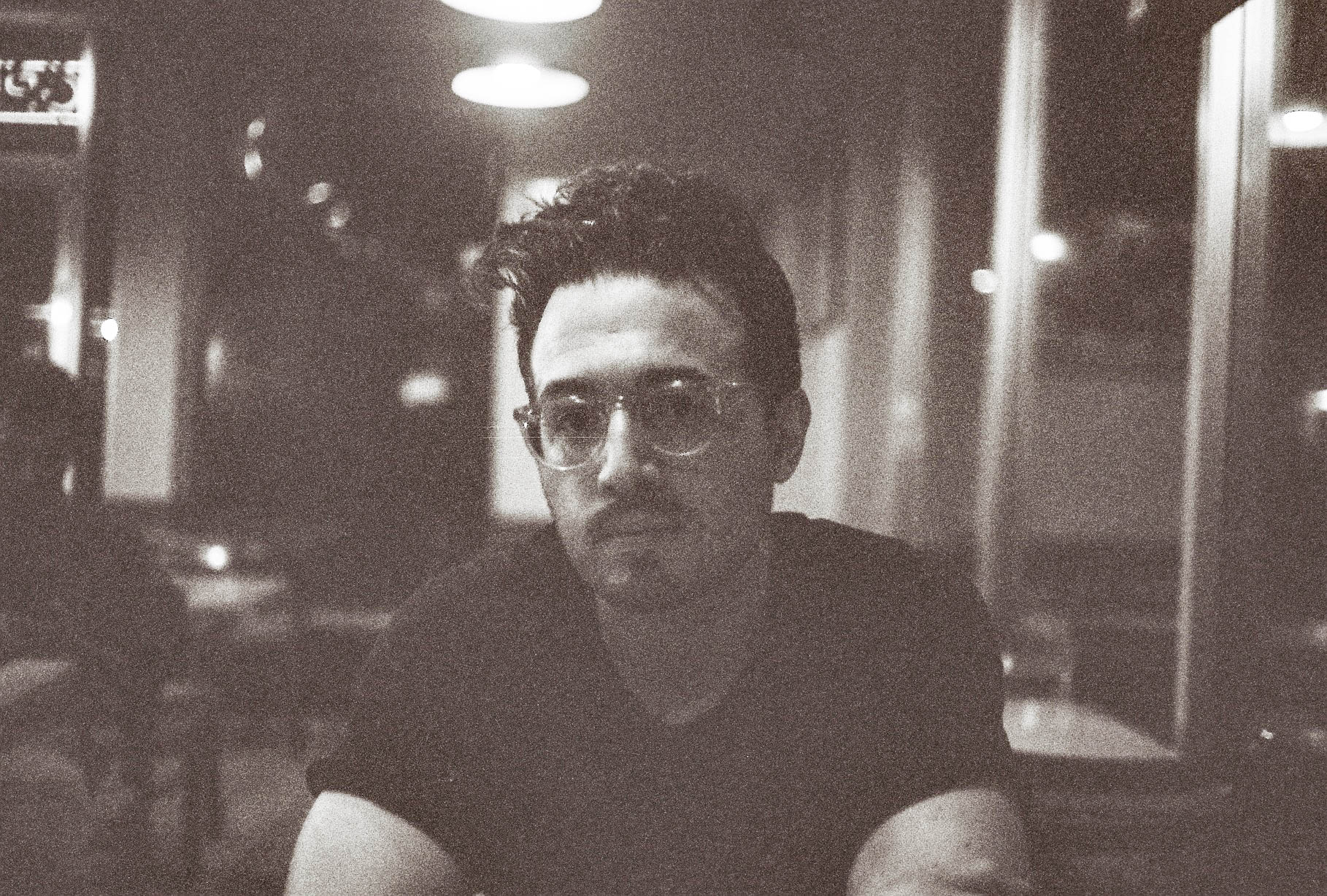Okay, okay... there were lots of other people there too, but I'll get to that later. With the 40-year anniversary of the end of the war between Vietnam and America in a few days, the timing of this was fortuitous. Our story begins with a dinner, as many of my stories do. One of my former students, Linh (pronounced “ling’), had invited me to have dinner with her and her family. Soon they would be leaving for Newfoundland, Canada. They would be living in a small college town on the Eastern coast while her husband, Dzung (pronounced “zoong”), earned his Ph.D. At the end of this dinner they invited us to come to Bac Ninh Province (just North of Hanoi) to have a large dinner with their extended family.
The day of our departure arrived. 2 of Dzung’s former students, who had also been invited to this family affair, arrived at my door to guide us on our way to Bac Ninh. Along the way though, we made a few stops.
Viet Cong Cemetery
Our first stop was a cemetery for Viet Cong soldiers that had died in the war with America. This cemetery was in the outermost regions of Hanoi’s Long Bien District. Every district of Hanoi has it’s own cemetery just like this one. Living in Hanoi has already been eye-opening, in this historical department, but seeing the faces of all the soldiers on the headstones definitely adds another dimension to my understanding of the conflict.
Temples In Bac Ninh
We continued on, farther outside the city, until we got to a site with historic temples. These temples were in honor of the Ly dynasty, which ruled Vietnam 1,000 years ago. Apparently the temples had been destroyed in the war with America but had since been restored. The temples were interesting, but much like beautiful cathedrals in Europe, eventually they all begin to blur together. Here are some pictures though:
We stopped for a drink and then we hopped back onto our motorbikes and continued on, into the crowded roads of this small town. Eventually we came to another temple, but I was less interested in the temple than I was the cockfight that was raging immediately adjacent beneath the shade of an ancient, vine-covered tree. Vietnamese men sat around talking, laughing and watching. Children walking through the park ventured over transfixed by the violence occurring between the two birds.
Then we hurried through a soccer match a group of children were playing in the street and got back onto our bikes. We drove through Vietnam's rural 3rd world for a while on our way into the main town of Bac Ninh.
Bac Ninh's Legendary Clothing Market
Bac Ninh is famous for selling clothes at rock-bottom prices. The owners of clothing shops in Hanoi will go out to Bac Ninh on the weekends very early in the morning to purchase their clothes for the coming work week. This market acts as their ‘supplier.’ They then sell the clothes at a mark-up.
I had heard of this market before and now I was about to drive through it. All I can say is wow. It just kept going and going and going and going. I don’t think I have ever seen a more extensive stretch of market, nor a more congested one. We were not the only group trying to ride motorbikes through this narrow canyon of commerce. The flow of traffic through the tight corridors of this market was blocked by women stopping in the street to haggle from their bikes and women pushing carts of food through. People walked in and out of shops carrying clothes by the pound and exotic foods were sold on every corner. It was like a clogged artery. I had recently switched to a manual transmission bike too, so this irregular, sweaty crawl through the heart of this legendary market was no easy task for me, but I made it through eventually.
Lu & Sau
Eventually we made our way to the home where we would be having our dinner. It was a beautiful little courtyard tucked away amidst the hustle and bustle of the narrow veins of the town. We were served apricot drinks and introduced to the grandfather and grandmother of the family. To members of the family, they are just know as ‘grandmother’ and ‘grandfather.’ In fact many members of the family turned out not to actually know their names, but with a little bit of sleuthing I was able to track down their first names.
The grandfather’s name is Sau, which translates to the number 6 in English, The grandmother’s name is Lu, which apparently doesn’t translate to anything at all. They are both 99 years old and celebrating 80 years of marriage. To put this in perspective, they were alive for the French occupation of Vietnam. They had been alive during both world wars. In their time, they were simple farmers in the impoverished and isolated North of Vietnam. The war with America probably seemed pretty fresh to them in the full context of their life span, but we were told that they had no idea that the war with America had even happened. In fact, the only Western countries they even knew about were France (from the occupation) and Russia (a role model to the very communist Vietnam). Fun fact: it was not until Bill Clinton visited Vietnam in 2000 that the country switched from teaching Russian in the schools to teaching English.
Before I took their picture Lu asked "Is this the foreigner?" After I took their picture Sau asked "Is the picture over now?"
The two of them lived together in a large room that opened up directly into the courtyard. They slept in separate beds, each the quintessential rock-hard Vietnamese wooden standard. Amongst the dated photos of their family hanging on the wall was one particularly interesting series of photos. Next to the photo of Ho Chi Minh, which is standard in all Vietnamese rooms, were weathered pictures of Vladimir Lenin, Karl Marx and Friedrich Engels.
For dinner that night a series of wooden mats were laid down in the courtyard. We all sat cross-legged, separated by gender. The women formed a circle on one side and the men sat in a separate circle on the other side. I was introduced to most of the more than 20 men that sat around in this circle. One of them, Linh’s father, had lived in Moscow for a long time. Both he and his wife spoke Russian fluently. Another one was apparently a doctor and a general in the Vietnamese military. It is thanks to him that Sau and Lu are still alive after all these years, I was told.
Drinking With A Viet Cong Vet
Of all the new people that I met, the most thought provoking introduction was with a man who was a veteran of the ‘American War’ (as they call it). This man was a Viet Cong soldier. “He loves America!” I was told as this smiling man shook my hand heartily. “He wants to have a drink with you later!”
In Vietnamese culture, it is a sign of respect and goodwill (as well as a declaration of manliness) to do a shot of liquor (also called rice wine) with another man. In some cases you can substitute a shot for an entire beer depending on the alcoholic topography of the event you are attending. This particular dinner had more than 20 men in attendance. The house was a local producer of rice wine so the beer substitute was out of the question; it was only liquor. Most of these men would take this "1 on 1" shot with at least 15 of the other men they were dining with, in addition to group shots for everyone every 10 minutes or so. It adds up quick. And it was really strong. As an outsider, I am compelled to keep up as best I can in these situations, lest I be deemed unmanly. The ritual is to say a few words to one another (which, in my case, often must be translated), clink your shot glasses together, do the shot and then shake hands.
As I shook this former Viet Cong’s hand, moonshine still burning in my throat, I thought about just how welcoming the Vietnamese culture is. To me, the war between Vietnam and America is just something I learned about in history class, but it really happened. And it was awful. The things in the man's memory must have been powerful. I have my own set of cultural cues though. On the subject of the Vietnam War the first thing that comes to my mind are scenes from The Watchmen, with the Comedian. I know all my nerds out there will get that reference.
Now, although the American people are starting to heal, there is still a strong negative sentiment towards Vietnam. And yet, here on the other side, in the country that was actually destroyed by yet another American conquest, the page has been turned. I’m not very political, and I do my best to keep most of my opinions out of my writing here, but it seems to me that if anybody is entitled to hold a grudge here, it is definitely Vietnam.
The Vietnamese culture can certainly seem chaotic, callous and harsh from the outside but after living here for 8 months, I can personally attest to the fact that Vietnam really is one of the most peaceful places on this planet. Vietnamese people are some of the most sincerely kind and family-oriented folks you could ever have the pleasure to meet. What's more is that the culture of this nation is one of forgiveness. And as anyone who has been hurt before can tell you, forgiving and moving on is hard. It's really hard. I’m too young to have a dog in this fight, but I think we can all learn something from the forgiveness that is so clearly demonstrated here.
I know I have.
P.S. For some further reading on the legacy of the America/Vietnam War in Vietnam today, here are 3 interesting articles. The first is about the abandoned children of American soldiers living in Vietnam today. The second is about the longevity of the affects of Agent Orange. The third article is something that I think every American should read. If you weren't impressed reading about this Viet Cong veteran having a drink with me before, you will be after you read this.
( Washington Post )
( Reuters )
( The Guardian )
For more of my own writing on the subject, you can read about the war museum in Ho Chi Minh City HERE.









































